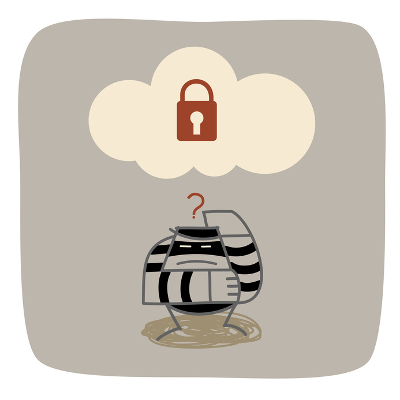As a computer user, this is a letter you might get one day. It contains information that nobody ever wants to hear:
‘We regret to tell you that, owing to a security breach, your online account with us may have been compromised. Your ID and password may have been stolen.’
This isn’t an imaginary scenario. It’s happened many times in recent years, even affecting large companies that have good security (or thought they did). Everyone needs to ask ‘How can I keep my data and my safe from hackers and cyberattacks?’ You can never insulate yourself completely from cybercrime, but with some common-sense measures you minimize the potential for becoming a cybercrime victim.
Technology keeps changing, and so do the opportunities for hackers. There’s been a major switch to the Software as a Service (SaaS) model, where the applications we use are hosted in the cloud, rather than supplied as CDs which you install on your PC, as previously. The SaaS model has many benefits and can be very convenient for work purposes. Ultimately, however, your security is then in the hands of the hosting company. You can’t tell them what to do, but you can take further steps to ensure your own security.
Strong Password Protection
Most people now know that it’s a bad idea to use the same password for multiple accounts, but many still do it because of the difficulties of remembering multiple passwords. Think of all the online accounts you have that require passwords, including your bank, your store deliveries, social media accounts and probably a whole lot more. You might have twenty, thirty or even more passwords to remember.
It’s tempting to have a document on your computer that lists all your passwords. It’s an easy way to make sure you have them to hand, but it’s not recommended. If your computer is compromised, and someone gains access by using malware or a phishing scam, then this is a gift to hackers and identity thieves.
A digital record of your passwords should only be done using an encryption service, or secure password manager. With some, like LastPass and RoboForm, you get military-level encryption and peace of mind, knowing that your passwords are always accessible to you, but not to intruders.
A Dedicated Online Payment Card
If you pay for bills or services online – and who doesn’t, these days? – you could consider a separate credit card to protect yourself from an attack on your network. Most of us one card to purchase everything. You could use a card for your SaaS payments and make sure that the money available on that card is no more than the subscription fees you owe. If there’s a problem you’ve at least ringfenced your potential losses.
These easy steps should offer some additional protection to your data and finances if there’s a security breach linked to one of your online accounts. It will also save you a lot of time and irritation if your become a victim of cybercrime and are forced to change all of the passwords for all of your accounts.

